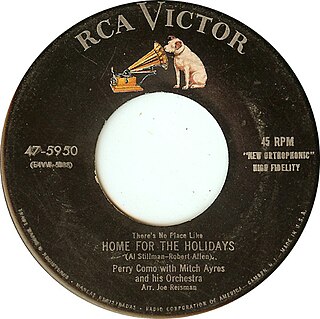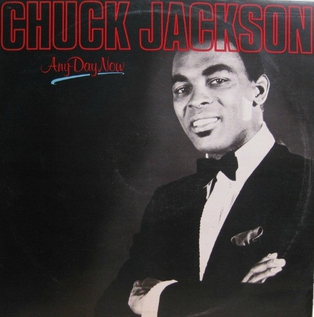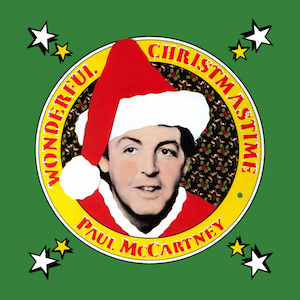Related Research Articles
"Wanted" is a popular song written by Jack Fulton and Lois Steele. A recording by Perry Como was the most popular version, reaching No. 1 in the US. Al Martino also recorded a version which reached No. 4 in the UK.
"Some Enchanted Evening" is a show tune from the 1949 Rodgers and Hammerstein musical South Pacific. It has been described as "the single biggest popular hit to come out of any Rodgers and Hammerstein show." Andrew Lloyd Webber describes it as the "greatest song ever written for a musical".

"I Don't See Me in Your Eyes Anymore" is a popular song, written by Bennie Benjamin and George David Weiss and published in 1949. The song was popularized that year by Gordon Jenkins and His Orchestra and by Perry Como.

"(There's No Place Like) Home for the Holidays" is a 1954 song commonly associated with the Christmas and holiday season. The lyrics detail the joys of being in your home community during the holidays and give examples of how some people will travel long distances to be with their loved ones. The music was composed by Robert Allen, with the lyrics written by Al Stillman.
"I Believe" is a popular song written by Ervin Drake, Irvin Abraham, Jack Mendelsohn and Al Stillman in 1953. The most popular version was recorded by Italian-American singer Frankie Laine, and spent eighteen weeks at No. 1 on the UK Singles Chart.

"(Get Your Kicks on) Route 66" is a popular rhythm and blues song, composed in 1946 by American songwriter Bobby Troup. The lyrics relate a westward roadtrip on U.S. Route 66, a highway which traversed the western two-thirds of the U.S. from Chicago, Illinois, to Los Angeles, California. The song became a standard, with several renditions appearing on the record charts.
"Magic Moments" is a popular song composed by Burt Bacharach and written by Hal David, being one of the first songwriting collaborations by that duo. This song was recorded by Perry Como and released in 1957 as the B-side of his "Catch a Falling Star"; it reached No. 1 in the UK in 1958.

"White Christmas" is a song reminiscing about an old-fashioned Christmas setting. Written by Irving Berlin for the 1942 musical film Holiday Inn, the song won the Academy Award for Best Original Song at the 15th Academy Awards. Originally sung by Bing Crosby, it topped the Billboard chart for 11 weeks and returned to the number one position again in December 1943 and 1944. His version would return to the top 40 a dozen times in subsequent years.
Frank Mills is a Canadian pianist and recording artist, best known for his solo instrumental hit "Music Box Dancer".
"If We Make It Through December" is a song written and recorded by American country music singer Merle Haggard and the Strangers. It was released in October 1973 as the lead single from the album Merle Haggard's Christmas Present, and was the title track on a non-Christmas album four months later. In the years since its release, "If We Make It Through December" — which, in addition to its Christmas motif, also uses themes of unemployment and loneliness — has become one of the trademark songs of Haggard's career.
"Do You Hear What I Hear?" is a song written in October 1962, with lyrics by Noël Regney and music by Gloria Shayne. The pair, married at the time, wrote it as a plea for peace during the Cuban Missile Crisis. Regney had been invited by a record producer to write a Christmas song, but he was hesitant due to the commercialism of Christmas. It has sold tens of millions of copies and has been covered by hundreds of artists.
"Mandolins in the Moonlight" is a popular song, written by George David Weiss and Aaron Schroeder.
"Somos Novios" is a song first recorded by Mexican songwriter Armando Manzanero in 1968. Perry Como recorded an English version of "Somos Novios" with original English lyrics titled "It's Impossible", which was a top 10 hit in the US and the UK.

"Summer Wind" is a 1965 song, originally released in Germany as "Der Sommerwind" and written by Heinz Meier and German language lyrics by Hans Bradtke. Johnny Mercer re-wrote the song into English along the same themes as the original, which talked of the changing of the seasons using the Southern European sirocco wind as a metaphor. In America, it was first recorded by Wayne Newton and subsequently by Bobby Vinton and Perry Como.
"Round and Round" is a popular song by Joe Shapiro and Lou Stallman published in 1956. A version of the song was recorded by Perry Como for RCA Victor on January 15, 1957 and was a big hit that year.
"And I Love You So" is a popular song written by folk singer and guitarist Don McLean and released on his 1970 debut album, Tapestry. Its chorus features an unusual rhyming scheme for a popular song: ABBA versus the usual AB(C or A)B.

"Any Day Now" is a popular song written by Burt Bacharach and Bob Hilliard in 1962. It has been recorded by numerous artists over the years, including notable versions by Chuck Jackson in 1962, Alan Price in 1965, Elvis Presley in 1969, Scott Walker in 1973 and Ronnie Milsap in 1982. In the lyrics, the singer predicts the imminent demise of a romantic relationship and describes the sadness this will leave.

"Wonderful Christmastime" is a Christmas song by English musician Paul McCartney. Recorded during the sessions for his solo album McCartney II (1980), it was released as a single in November 1979 following Wings' final album Back to the Egg earlier that year. It was McCartney's first solo single in over eight years since "Eat at Home" in 1971. "Wonderful Christmastime" has charted within the top 10 in Austria, Germany, Ireland, Latvia, the Netherlands, and the United Kingdom as well as the top 20 in Canada, Slovakia, Sweden, and Switzerland. It is a lauded song during Christmas and has been covered throughout the years by numerous artists.
"Funny How Time Slips Away" is a song written by Willie Nelson and first recorded by country singer Billy Walker. Walker's version was issued as a single by Columbia Records in June 1961 and peaked at number 23 on the Hot C&W Sides chart. The song has been featured in several live action films and television shows, such as in the first episode of the second season of AMC’s Better Call Saul and in the 2020 Netflix drama The Devil All the Time.

Christmas Eve with Johnny Mathis is the fourth Christmas album by American pop singer Johnny Mathis that was released on September 23, 1986, by Columbia Records. This was Mathis's fourth holiday-themed LP and focused exclusively on secular material.
References
- ↑ Terrace, Vincent, ed. (1985), Encyclopedia of Television: Series, Pilots and Specials 1974-1984, Baseline Books, pp. 323–324, ISBN 0-918432-61-8 , retrieved 2010-04-14
- ↑ YouTube performance
- ↑ Whitburn, Joel (2013). Joel Whitburn's Top Pop Singles, 14th Edition: 1955-2012. Record Research. p. 187.
- ↑ "Perry Como Chart History (Hot 100)". Billboard. Retrieved November 28, 2023.